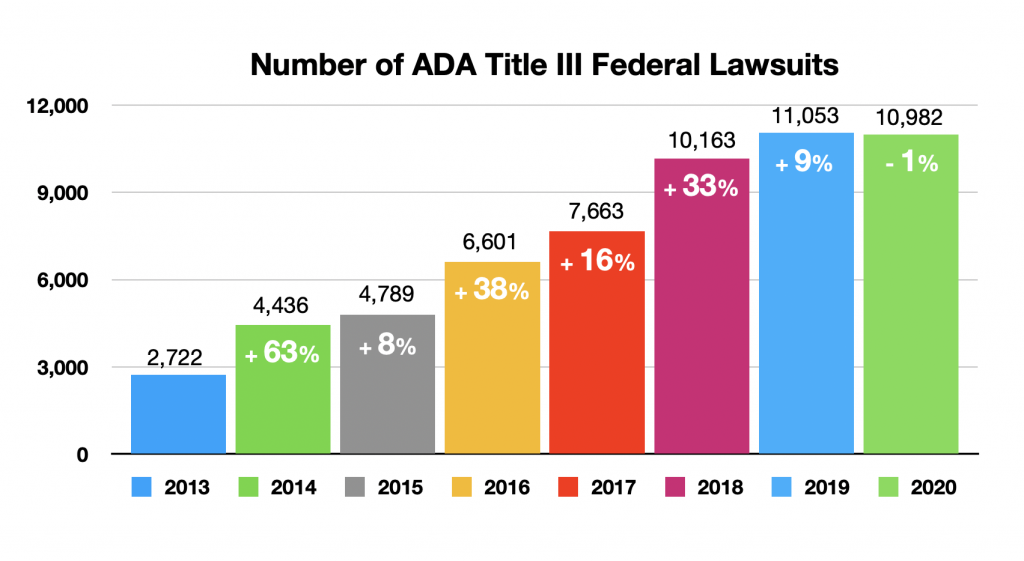
Year after year, thousands of website accessibility lawsuits flood the federal court system. The wave of lawsuits demand that online businesses make navigating their websites easy for disabled people. Unfortunately, the courts have ruled inconsistently on the matter which has led to uncertainty when it comes to what the guidelines are and who they apply to. Nonetheless, websites that conform to the Web Content Accessibility Guidelines (WCAG) 2.1 are likely to be considered ADA compliant.
Website accessibility lawsuits over the years
For the most part, website accessibility lawsuits allege violations of the Americans with Disabilities Act (ADA), specifically at Title III. Over the years, ADA Title III lawsuits have steadily increased with the exception of a tiny decline in 2020. Last year, 10,982 ADA Title III lawsuits were filed in federal courts across the country. This is down 1% from 2019, but we all know that 2020 was not the typical year.

Inconsistant Court rulings
Despite the lack of the word “website” appearing in the text of the ADA, some courts interpret the text to include websites. This split among the courts means the interpretation of the text will vary from jurisdiction to jurisdiction.
Many were hoping an Eleventh Circuit ruling would clear the muddy waters. With it’s highly-anticipated decision in the Gil v. Winn-Dixie case, the Court found that websites are not places of public accommodation. This decision reversed Gil’s win in a Florida federal court which found that Winn-Dixie’s website accessibility violated the ADA.
It’s important to note that the Eleventh Circuit’s ruling was largely based on the fact that Winn-Dixie’s website did not contain an e-Commerce element. The Eleventh Circuit leaves website owners with little guidance or reassurance. Furthermore, the Court’s decision leaves uncertainty as to how the law would be applied in circumstances where, unlike Winn-Dixie, a retailer has an e-Commerce website. This leaves e-Commerce websites particularly at risk of ADA Title III lawsuits.
ADA website compliance
Plaintiff attorneys will do what plaintiff attorneys do, and they will file cases in favorable jurisdictions. While we wait for further guidance, there are measures businesses can take. The standard for ADA website compliance is to work toward “substantial compliance” with the Web Content Accessibility Guidelines (WCAG) 2.1. We encourage online businesses, especially those with e-Commerce websites, to be diligent and ensure your website is ADA compliant.
Related Articles: What Does ADA Compliance Mean for Websites?